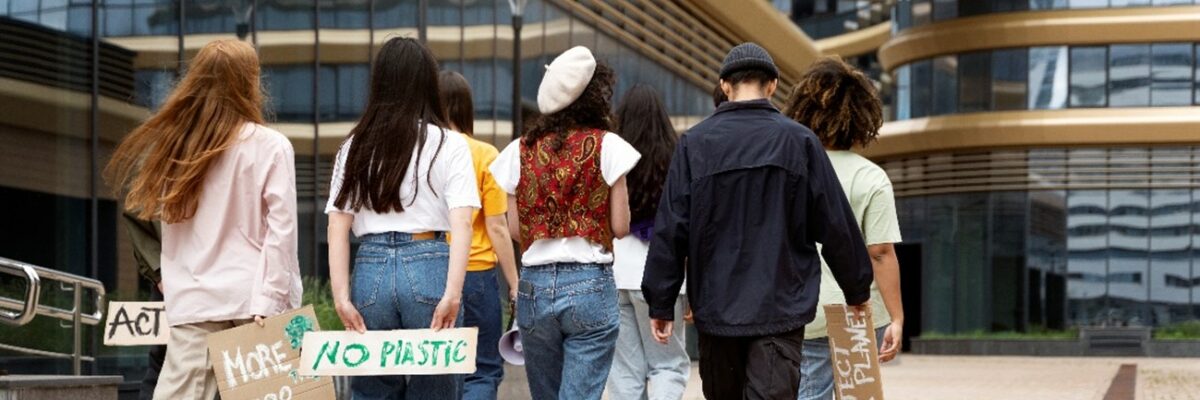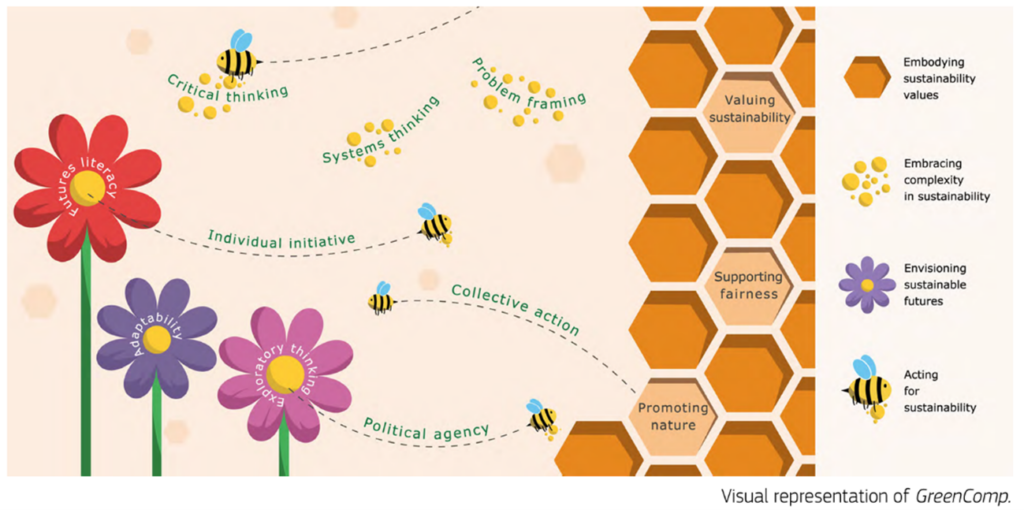

The Introduction of Sustainability in Fashion Education: The State of Affairs
https://it.freepik.com/foto-gratuito/giovani-attivisti-in-azione_29013138.htm
In recent years, sustainability has become a central theme in many global discussions, and education is no exception. In a world increasingly aware of environmental and social challenges, integrating sustainability into school and university curricula has become a priority for many educational systems. Fashion vocational schools play a crucial role in integrating sustainability into their educational programs, as the fashion industry is one of the most environmentally impactful. Several fashion schools have begun to redefine their curricula to include sustainability as a fundamental component.
This brief article explores the current state of sustainability education, analyzing the progress made, the challenges encountered, and future prospects.
A Necessary Paradigm Shift - Sustainability in education is not just about teaching ecological concepts but represents a true paradigm shift. It means integrating sustainable principles into all disciplines, promoting a holistic approach that includes economic, social, and environmental aspects. This shift aims to form conscious citizens capable of addressing and solving the complexities of our time. Globally, UNESCO has played a fundamental role in promoting Education for Sustainable Development (ESD). The Global Action Programme on ESD has stimulated numerous initiatives, encouraging countries to integrate sustainability into their educational systems.

https://publications.jrc.ec.europa.eu/repository/handle/JRC128040
Progress and Best Practices - Many schools and universities are already making significant strides. Some institutions have introduced specific courses on sustainability, while others have adopted greener practices, such as recycling and the use of renewable energy in their buildings. Additionally, numerous extracurricular initiatives, such as school garden projects and awareness campaigns, are actively involving students.
In the specific case of vocational training in the fashion sector, some schools are teaching sustainable design techniques, such as upcycling and the use of eco-friendly materials. Training courses on organic fabrics, natural dyes, and low environmental impact production methods have become increasingly common. These programs not only educate students on sustainable materials but also on production practices that reduce waste and the use of harmful chemicals. Another aspect is the collaboration between schools and industry companies to offer students practical experiences in sustainability. Internships and projects with brands that adopt sustainable practices allow students to see firsthand how theory translates into practice.
Fashion schools are promoting awareness through workshops, conferences, and competitions focused on sustainability. Initiatives like these stimulate creativity and innovation, pushing students to develop new sustainable solutions for the fashion industry. Encouragement for sustainable innovation is already producing tangible results, with many students presenting innovative projects at international fairs and competitions.
Challenges to Overcome - Despite the progress, many challenges remain. One of the main challenges is the lack of adequate resources and funding. Additionally, resistance to change, both among faculty and school administrators, can hinder the effective implementation of sustainability education programs. The need to constantly update educational content to reflect the latest scientific discoveries also represents a demanding task.
The future of sustainability education depends on the ability to create synergies among various actors: schools, universities, government agencies, NGOs, and the private sector. Collaboration is essential to develop innovative programs and ensure that sustainability becomes a central element of education. Sustainability education is not just an opportunity but an urgent necessity to ensure that our children and grandchildren can live in a healthy and prosperous world.

Az Európai Unió finanszírozásával. Az itt szereplő vélemények és állítások a szerző(k) álláspontját tükrözik, és nem feltétlenül egyeznek meg az Európai Unió vagy az Európai Oktatási és Kulturális Végrehajtó Ügynökség (EACEA) hivatalos álláspontjával. Sem az Európai Unió, sem az EACEA nem vonható felelősségre miattuk.
